Retail group > Carrefour
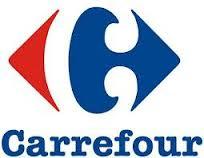
Carrefour
Carrefour is a French international hypermarket chain founded in 1959. It is not only the largest hypermarket chain in the world in terms of size, but also the second largest retail group globally in terms of revenue as well as the third largest in profit after WalMart and Tesco. Carrefour serves around 13 million customers globally.
Furthermore, Carrefour operates mainly in Europe, Asia and Latin America, but also has stores in Africa. The company manages a total of 12 225 stores, either owned or franchised, in over 30 countries.
Carrefour operates several stores under the following category across the world:
- 1207 Hypermarkets
- 3412 Supermarkets
- 7193 conveniences stores
- 413 Cash & Carry stores
The Group also owns an Iranian subsidiary, Hyper Star.
An online shop is also available on the website. Moroever, in 2021, Carrefour launched occasion.carrefour.fr in order to provide an online platform where second-hand products are offered.
Moreover, Carrefour has also launched a new Ok Market! application, paired with a shopper service, which provides personalized e-commerce service as well as home delivery.
Pertaining to delivery services, Carrefour and Everli formed a partnership in 2021, offering French consumers a choice of up to 20,000 products.
As of June 2018, the firm entered into partnership with Google to sell food online in France. This mission has been set up to make Carrefour the leader in grocery e-commerce. The project launched in early 2019.
The Group has also announced a strategic partnership with Meta. Furthermore, in 2021, Carrefour Group and Coop Nordics reaffirmed their strategic partnership, extending it to include international brands.
In 2020, Carrefour launched its first hypermarket in Kampala, Uganda. The new hypermarket, launched in collaboration with Majid Al Futtaim Group. Furthermore, in 2021, the company signed a deal with Shoprite to acquire 6 of its stores in Uganda.
The enterprise also took over the organic chain Bio C'Bon. Carrefour's subsidiary, So.bio, will be managing the operations of the Bio C'Bon stores. Currently, these two brands have around 160 points of sale across the country.
Moreover, Carrefour acquired Potager City, a business involved in the sale of online subscription boxes of fresh vegetables and fruits. Potager City works with 750 local producers. The acquisition will help Carrefour to expand its e-commerce business.
The firm then took over Dejbox, a business which is an online business which delivers lunches across France. The business delivers around 400 000 meals per month.
In 2021, Carrefour opened its first autonomous store which operates using artificial intelligence. In the same year, the enterprise announced the opening of its new store in Gabon with its franchise partner Prix Import.
In collaboration with AiFi, the company also lauched Flash 10/10 store which offers customers the fastest and most accessible shopping experience.
In 2020, Carrefour has achieved a total turnover of € 70.7 billion. Additionally, the company employs over 321,000 people across the world.
The firm provides a wide assortment of products under the following categories:
- Sweet Grocery: chocolate, cookies, cakes, cereals, etc.
- Savory Grocery: soups, pasta, rice, oil, vinegar, sauces, etc.
- Chilled & Fresh Food: seafood, meat, poultry, etc.
- Frozen Food: ready meals, ice cream, meat, poultry, vegetables, fruits, etc.
- Dairy: butter, margarine, eggs, cheese, milk, etc.
- Drinks: water, fruit juices, vegetable juices,etc
- Wine & Spirits: wine, spirits, gins, etc.
- Personal Care: oral care, makeup, face care, skincare, etc.
- Household: detergents, deodorants, laundry care, etc.
Several items which are bio, gluten-free, vegan, etc, are also offered.
Carrefour generates up to 40% of its total revenue through its own brands and aims to reach half of its retail sales through private labels in the next few years as it will expand its ranges in food and non-food categories.
Nowadays, 73% of the group’s own brand products are manufactured by SMEs and local suppliers generating up to 10 000 private labels, in almost all categories and segments. These include brands such as:
- Carrefour: including Carrefour Baby, Carrefour Kids, Carrefour Halal and Carrefour Exotique (foreign food) — and “Bon’app” (snacks) for budget to mid-priced products.
- Reflets de France and Terre d’Italia: for artisanal and regional specialties sourced in France and Italy.
- Carrefour Bio: for organic food and non-food as well as for fair trade, Filière Qualité Carrefour for quality sourced food products, Carrefour Eco Planet for organic HPC and Carrefour Sans Gluten for gluten free products.
- Selection Carrefour: for Premium ranges.
- Tex: for clothing.
- Cosmetiques Design Paris: the brand launched in 2012 for beauty and personal care.
Pertaining to Carrefour’s Bio branded products, the firm has decided to ban 100 controversial ingredients from all the food products. Also, they are aiming to diminish the use of chemical pesticides in the livestock areas and feed GMO-free grains.
It must be noted that currently Carrefour works with 27 800 suppliers for its own brands.
In the breeding sector, Carrefour is going to reduce antibiotic treatments. Thanks to the blockchain, Carrefour is able to assure transparency of products.
Furthermore, 92% of its seasonal fruits and vegetables are of French origin.
Carrefour is interested in providing to its consumers certified fish through Aquaculture.
In relation to the supply chain, the company partnered with Plug Power Inc to establish 137 Plug Power GenDrive-powered electric forklifts for the two to three shift operation in its distribution centre.
With regards to the environment, Carrefour indulges in several measures such as reducing its CO2 emissions, fighting against deforestation and for the protection of water resources, etc. Furthermore, the enterprise aims to achieve carbon neutrality by 2040.
The online shop can be accessed at: www.carrefour.fr
Headquarters
 Massy, France
Massy, France
Phone number

Facts and figures
250 to 499






 Download
Download Atacadã£o Brazil
Atacadã£o Brazil
 Carrefour Belgium
Carrefour Belgium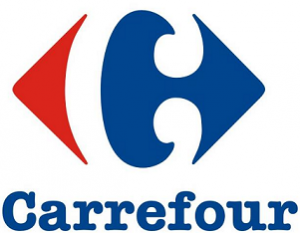

 Carrefour China
Carrefour China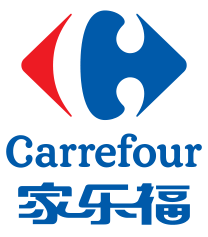
 Carrefour Italy
Carrefour Italy
 Carrefour Poland
Carrefour Poland
 Carrefour Romania
Carrefour Romania
 Carrefour Spain
Carrefour Spain
 Carrefour Taiwan
Carrefour Taiwan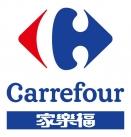
 Carrefour Turkey
Carrefour Turkey
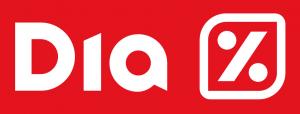
 Carrefour Argentina
Carrefour Argentina
 Carrefour Bulgaria
Carrefour Bulgaria
 Carrefour Greece
Carrefour Greece
 Carrefour Indonesia
Carrefour Indonesia
 Supeco Spain
Supeco Spain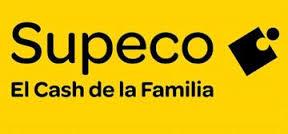
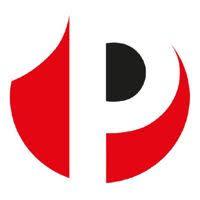
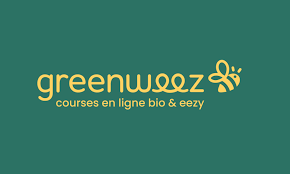
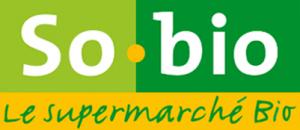
 Maf Carrefour Georgia
Maf Carrefour Georgia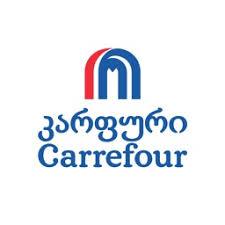
 Carrefour Egypt
Carrefour Egypt

